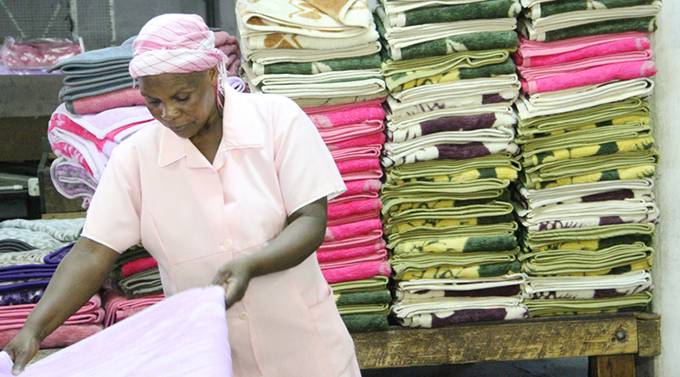New investor for David Whitehead Textiles
A NEW investor has shown interest to take over the fallen textiles giant, David Whitehead, a senior Cabinet minister has said, in what would be a major boost to the local agricultural and manufacturing industries.
In an interview with New Ziana, Finance and Economic Development Minister, Professor Mthuli Ncube did not disclose the identity of the prospective investor, but said they had shown strong interest, and proposed to pour in a substantial amount to revive the moribund business.
Finance Minister Professor Mthuli Ncube
David Whitehead, at one point by far the country’s leading textiles company, has been wobbling since 2004, saddled by debt and other challenges.
It was at one time placed under judicial management, but has remained unsteady even after exiting curatorship.
Prof Ncube said the revival of the company, which is based in Chegutu, would be a vital cog in Government efforts to re-establish value chains in the cotton industry.
Government, he said, was keen to ensure that an increasing portion of the vast amount of cotton produced in the country is locally value-added instead of being exported raw, a role David Whitehead and other textile companies played in the past.
At its peak, the company produced about 20 million metres of fabric per year, and directly employed 3 000 workers, while thousands others in downstream and upstream industries also depended on it.
“I was fairly pleased that David Whitehead Textiles is coming back, and the investor is into it. I had a meeting last week at my office with the chief executive officer of David Whitehead Textiles and I am pleased with what I heard,” Prof Ncube said.
He said the Government was earmarking a lot of resources, including funds sourced from the International Monetary Fund (IMF), to reboot the local textiles industry.
International Monetary Fund (IMF)
“As a country, what we need to do is complete our cotton value chain.
What we have done is I have allocated a portion of SDR (Special Drawing Rights) from IMF towards supporting the clothing industry for manufacture of clothes locally,” he said.
In part, the local textiles industry was also affected by the influx of second hand clothes from overseas over the years. — New Ziana









